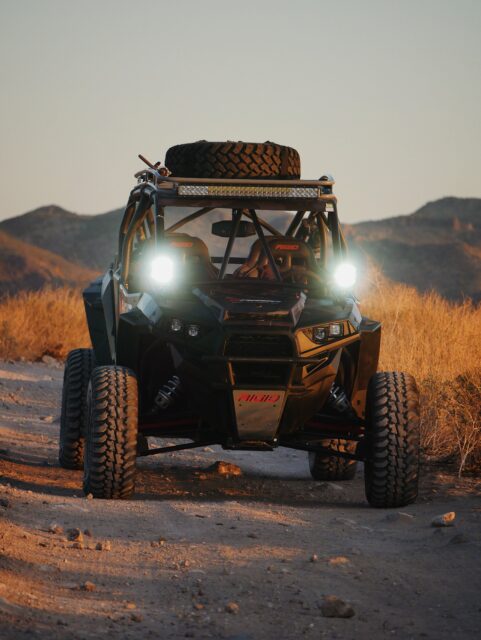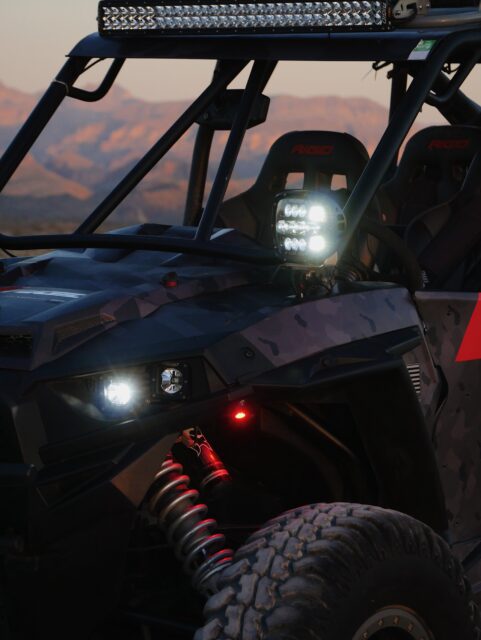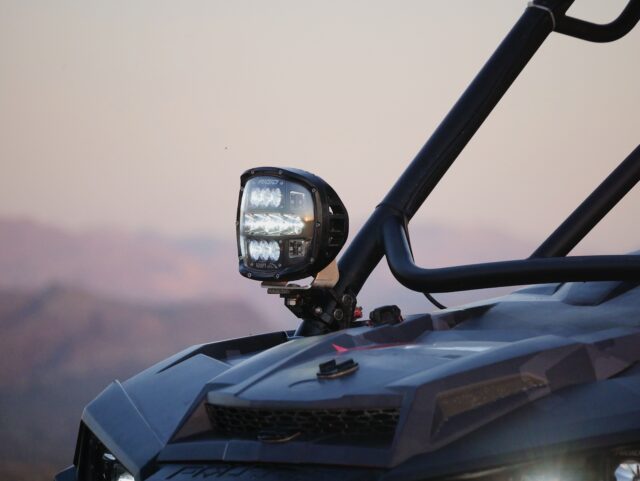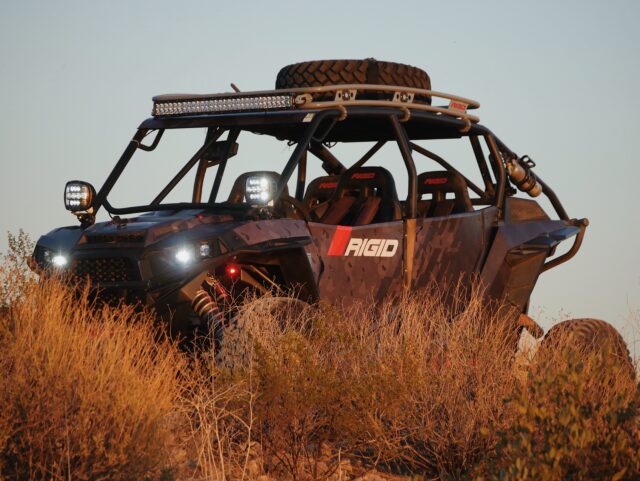I’ll admit, I have a devious auxiliary light fetish. In fact, my Vanagon Syncro would be the perfect lighting rig for a Floyd concert or qualify as a mobile lighthouse. Admittedly, I went a little overboard, much like the sailors depending on me. However, at the time, it did feel as though the wider overlanding community were similarly obsessed with “more is better.” In recent years this has changed, as overlanders opt for quality over quantity. Ultimately, weight is a killer, and whilst Group B-style halogens look darn cool, they’re not optimal and are pretty heavy. Hence, I’ve seen many travellers swap out their armada of cheaper lights for two high-powered premium alternatives. This trend hasn’t gone unnoticed with offerings from KC HiLites (Flex Era 4), Baja Designs (LP4 Pro), and now the Rigid Adapt-XP.


The Rigid Adapt-XP Extreme Powersports LEDs, like the KC and Baja options, are upmarket high-performance lights with a price to match at $700 a pair. This light is made to last and utilises a high-strength aluminium heat sink and an impact-resistant polycarbonate lens. Rigid has evidently invested extensive research in creating a more intelligent light, and subsequently, the light showcases a “whole new level” of adaptive response to your vehicle and driving conditions. The first layer of adaptive response is the company’s Active Power Management (APM) system which monitors input voltage. If the voltage is stable, the Adapt-XP will continue to use all available power to provide optimum output. But if the voltage drops, then the system will reduce the light’s power consumption. The second layer is Rigid’s Active View technology, which utilises an internal GPS module to determine vehicle speed; it distributes power to the three optic zones accordingly for optimum beam pattern. As the vehicle speed changes, power is dynamically routed to the scene optics for low, moderate, and high-speed driving (this is all done gradually, so transitions are seamless). Additionally, they feature a Magnetic Reed power clip, which, when left in place, limits the light consumption to a maximum of 2.7 amps for the single unit and 2.5 amps per light for the pair when all zones are activated (output is 40 watts with the switch in place). When the switch is removed, the single light will consume up to 6.5 amps, and the pair will consume up to 5.7 amps per light when all zones are activated (the single light output with the switch removed is 90 watts; for the pair, it is 80 watts).

The Rigid Adapt-XP showcases some notable features, perhaps most notably their Active Power Management system and Active View Technology. The price, like the alternatives, is considerable, but one I’d happily incur for the durability and performance. I’m always looking to fine-tune my rig, and it’s pretty clear that two premium spots would be all the additional upfront auxiliary lighting I could ever need. Furthermore, buying cheap is often a false economy, particularly when companies like Rigid offer such an amazing warranty on their products: “If you purchased a Rigid light and it breaks, we will replace or repair it for life.” If you’d like to know more about the Rigid Adapt-XP, then check out the full specifications below or head over to their website.
$700 | rigidindustries.com
Specifications
– 3 optic zones: scene, driving, spot
– Seamless beam transition
– Slow, moderate, and high-speed beam patterns
– Two layers of adaptive response
– Active Power Management system, power capacity sensing
– Active View Technology, internal GPS module
– Use in Adapt mode or All-on
– 9-32 VDC
– Impact-resistant polycarbonate lens
– Durable UV polyester powder coat
– Universal fit
– Operating temp -22°F to +158°F/-30°C to +70°C
– Alloy housing and heatsink
– Patented optics
– 50,000-hour+ LED lifespan
– Limited lifetime warranty
– Off-road use only
– Wiring harness sold separately



